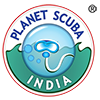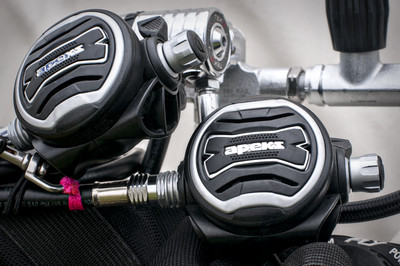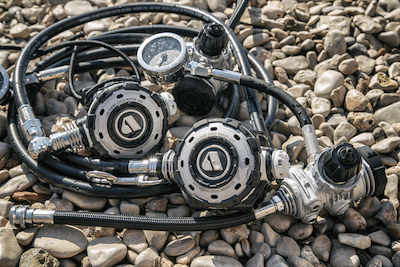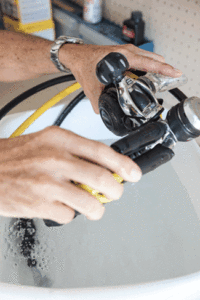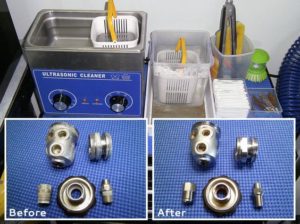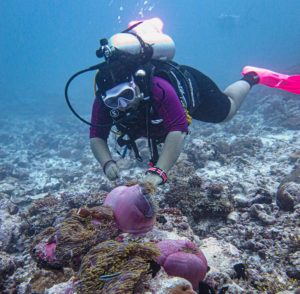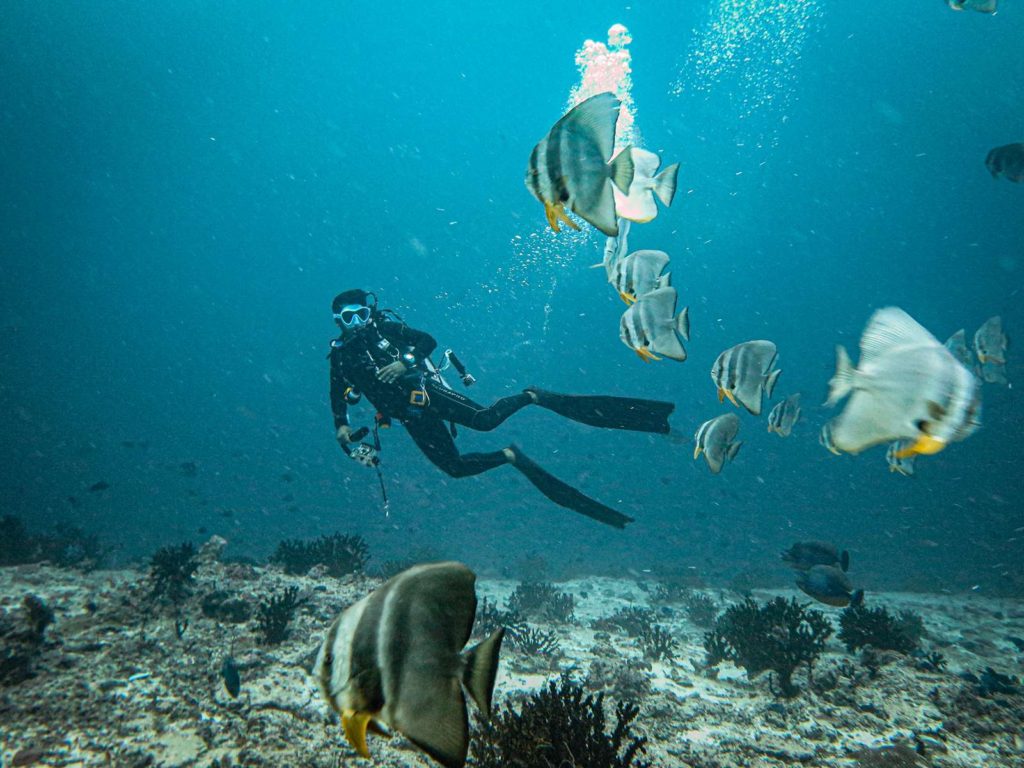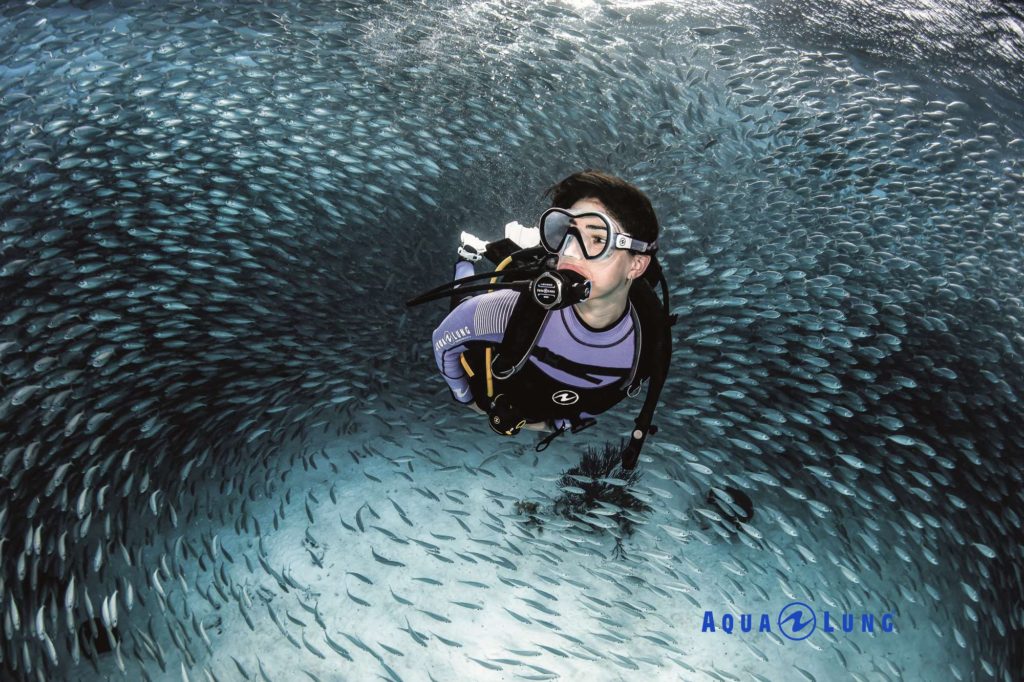‘How do I disinfect my scuba diving equipment in India?’ In light of the Covid-19 pandemic, this is the key question doing the rounds. By divers of their own personal scuba gear. By fun divers and students using rented equipment. And by dive professionals and dive centers in India that will soon start renting out their scuba diving equipment.
The specifics of the question lie in the ‘in India’ part. Though there are many articles on the topic, few list products available in our country. Bleach was touted as a savior till fairly recently. And we must say that bleach-based products help keep your personal space, office and dive center sanitized. But can bleach, even in its diluted form, be used on scuba equipment?
The jury is still out on this one. Some equipment manufacturers have released statements based on the CDC recommendations of 1/3 cup bleach per gallon of water. But after multiple tests on its products, Apeks released a blog a few days ago. It stated that divers should “not use bleach-based disinfectants. Or disinfectants known to be corrosive, as these can prematurely age or corrode the equipment being used.”
Our recommendation based on current information:
Disinfecting your dive equipment
Planet Scuba India has been servicing dive equipment with Biox for quite a while now. It is a cleaner that has been designed to remove contaminants on breathing apparatus, including scuba gear. It is non-toxic, non-hazardous and non-flammable. Which means that it can be used without gloves. Unless, you have any cuts or other open wounds on your hands. Of course, that was during the pre-Corona era (when the above image was clicked), right now gloves are a mandatory part of equipment servicing.
Biox has been formulated to aid cleaning in ultrasonic baths. Baths that run at temperatures at which we know the Corona virus strain starts to break down. Still not convinced? The brand has also suggested additional cleaning processes to ensure that traces of bacteria and viruses are removed.
Besides, Biox is an excellent stain remover. It removes surface oils and other particles, thereby reducing the chances of the virus being protected by other contaminants. That means that there are no hiding places for the viruses and bacteria to exist on.
The even better part about this cleaner? It is biodegradable! Yes, you read that right. You don’t need any special methods to dispose of it.
To know more about this safe, non-toxic product and how to use it, send in your emails to info@planetscubaindia.com or contact us online here
Free servicing of scuba diving equipment in India
We know you are as eager as us to get back into the ocean. So why not get your scuba gear checked, before you take that giant leap into the beautiful blue again. After all, equipment servicing is key to safe diving.
Planet Scuba India is offering free servicing, calibration and testing of your Aqua Lung and Apeks BCDs and regulators. We know your next question. The answer is, yes, our technicians are using all the necessary Covid-19 safety precautions. While servicing, and later while handling and packing your dive equipment.
To avail of this limited time offer, contact us online or email us at service@planetscubaindia.com
*The above advice is based on current information regarding Covid-19. It does not reduce the chance of catching the infection post your equipment servicing. Or common sense and adherence to all government and medical guidelines regarding Corona virus.
India scuba diving & other fascinating facts

Scuba diving in India is still at a nascent stage. This is mostly because only a small percentage of Indians have taken that giant leap and joined the dive club. That said, most non-divers are as intrigued by the underwater world. As a scuba diver, you have definitely been asked some, or most, of these questions: What does scuba mean? Do you breathe oxygen underwater? Are corals as colorful in reality as they are in pictures? Have they really found the lost city of Dwarka, and can you dive there?
You can find the answer to all these questions here, along with some more fun facts about scuba diving in India. Also we have interesting tidbits about diving in general, which you may not have known.
Scuba is an acronym.
It stands for ‘self-contained underwater breathing apparatus’.
In 1943, the first scuba gear was invented.
By Jacques Cousteau. It was called Aqua Lung. Currently, one of the top scuba diving equipment companies in the world.
Divers breathe compressed air underwater.
No, not oxygen. In fact, breathing oxygen under pressure is toxic. The scuba diving cylinder contains the normal air you breathe on land, which is 79% nitrogen and 21% oxygen.
Colors fade underwater.
This is because water absorbs light. Water absorbs different wavelengths of light to different degrees. The first to fade is red. Next to follow is orange, then yellow… This is why your blood looks greenish-black underwater. It is also why corals don’t appear as colorful as they are in pictures. Well, until you point the light from your dive torch at them.
Only 5% of the oceans have been explored.
The final frontier is not just space, but also our own oceans. Approximately 95% of the world’s oceans still remains a mystery to us.
The Challenger Deep in the Mariana Trench is the deepest point in the ocean.
It is about 10,944 metres below sea level. No chance of scuba diving there. But it was first explored in 1960 by Jacques Piccard and Don Walsh.
The world’s deepest scuba dive is at 332.35 metres.
Or 1,090 feet and 4.5 inches to be exact. Ahmed Gabr broke the Guinness World Record for the deepest scuba dive in 2014. Then 41-year-old, he set this world record in the Red Sea, off the coast of Dahab, Egypt.
For scuba diving in India, only a fraction of our 7,500-kilometre coastline has been explored.
The Andamans and Lakshadweep are two of the best-known destinations for scuba diving in India. But there’s also good diving in Goa, Netrani, Pondicherry, Chennai, Rameshwaram…
Scuba diving in India at Dwarka has been on every avid diver’s bucket list.
Ever since marine scientists discovered archaeological remains underwater, off the Gulf of Khambhat, on the west coast of India. Rumor has it that the discovery might change history as we know it. And that the remains lying underwater here are allegedly 9,000 years old.
You can begin your scuba training at age 10.
The PADI Junior Open Water Diver certification allows young divers to dive with a PADI professional or certified parent or guardian to the depth of 12 metres.
9 ways to responsibly scuba dive in India
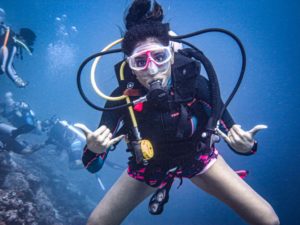
Being a responsible scuba diver is important wherever you are diving. But it’s even more so in India because of our dense population. The great news about being a responsible scuba diver is that it has a major feel-good factor, and together we can make a difference and raise awareness – all of which leads to healthier dive sites and the ongoing development of scuba diving in India. Here are some tips to responsibly scuba dive in India, how they help in your underwater adventure, and how they can help you in your daily life too!
1. Get certified to scuba dive in India
If you want to scuba dive, get certified! This not only increases your personal safety underwater, it also means you’ll learn about how to dive to limit your impact on the coral reef and marine life. This in turn means that dive sites stay preserved for you and other divers to enjoy, dive after dive. If you are not certified to dive, sign up for the PADI Open Water Diver Course – you can even start learning online from home now! Once you are a certified diver, you’ll be recognized as such by dive centers all around the world. Yes, you will have more places to explore and more buddies to meet and dive with!
2. Don’t touch coral reef or marine life
Did you know that corals are living animals? You need to treat corals with the same respect you would give other creatures. Touching corals can not only lead to nasty stings, but you can actually infect the reef. Contamination from humans can be deadly for coral reefs, and for the fish living there. Hard coral is often covered with a thin layer of live tissue which protects it. When touched by humans, this layer gets damaged. The basic rules of sustainable scuba diving are: (1) don’t touch the corals and (2) don’t take any corals or shells out of the ocean.
3. Be in control of your movements
Having good control underwater comes through proper training and supervised practice. If you are not a certified diver, sign up for a Discover Scuba Diving program. You’ll learn some basic skills to keep you and the reef safe, followed by an amazing dive in the ocean with an instructor. If you want to get certified, take the Open Water Diver Course and commit to learning to scuba dive in India. Want to develop your diving skills further? Why not take the PADI Advanced Open Water Diver course? Being in control of your movements makes you look more accomplished underwater and you’ll also be ensuring the longevity of the reef by not making contact with it. As an ‘in control’ diver, beginners will look up to you and follow your example.
4. Maintain good buoyancy
Divers with good buoyancy control are looked up to wherever they dive. Be a good role model with excellent diving skills, and you’ll gain the respect of your buddies in no time. Good buoyancy control also means that your air will last longer so you can dive for longer. You’ll be able to avoid crashing into a reef or making contact with the bottom. Also, you’ll also be able to maneuver better, which means you can get closer to the marine life and corals. You’ll reduce your stress and anxiety levels in the process as well. Say hello to more relaxing and comfortable dives.
5. Invest in the right equipment
Scuba diving in India is still a relatively new activity. There’s yet an element of ‘cool-ness’ attached to it. You have to have the right equipment if you want to look and feel great underwater. And it has to fit correctly! Over-sized gear or a too-snug fit are both uncomfortable and unsafe. Ask us about which scuba diving equipment you should have and how it should fit for the best performance. If your gear isn’t the right size for you, you’ll struggle with buoyancy and are more likely to damage the reef, since your focus remains on your gear and not on your surroundings. All your scuba gear needs to be tucked away. Nothing should be trailing or dangling, as it can cause to damage to the reef or even lead to entanglement.
6. Don’t pollute the water
For the sake of both land and marine species, it is increasingly important today to be responsible and try your best to reduce your environmental footprint. Never throw trash, even organic, in the ocean. Pick up any trash you see while diving, and others will follow your example. Role model good behavior at home too. Try to reduce your use of plastic by using eco-bags for your shopping and think twice about buying items that are overly packaged. In India, we generate a huge amount of plastic waste. Be a trailblazer and get active on social media about what you are doing to reduce your own plastic consumption.

7. Educate yourself and others
The more people know about something, the greater their interest in protecting it. Learn about corals and marine life and share your findings with others. Not only will you impress them with your knowledge, but you’ll also help create a new generation of educated Indian scuba divers who, like you, want to protect our amazing underwater world.
8. Be an ocean advocate
Being a scuba diver is not just about what we do when we are diving in India. It’s about our behavior at home too. Be a diver everyday by becoming aware of global issues such as climate change and overfishing. Join online conservation groups and be a leading voice on social media. We all know the power of people, so help start a wave of awareness and change!
9. Promote scuba diving in India
Share you underwater pictures and talk with your friends, family and neighbors about your adventures and experiences when scuba diving in India. The more Indian divers there are, the more powerful our collective voice becomes.
Are you ready to put these points into action? Get started by booking a PADI scuba diving course, or your next dives now! Contact us via our online contact form or send us an email to: holidays@planetscubaindia.com
— BY SARAH WORMALD, PADI
Scuba diving in India | Myths vs. Facts
Myths that are preventing people from learning scuba diving in India. From fear of shark attacks to having to travel to international waters. We debunk the top five diving myths.
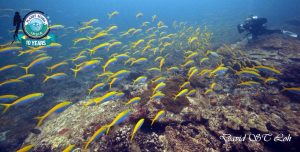
#1: You have to travel to international waters to scuba dive
There are some great sites for scuba diving in India. In fact, for some time now, scuba diving has been available right at your doorstep. For city dwellers, inland dive centers in India are a dream come true. You can complete the theory and confined water sessions of the PADI Open Water Diver Course in your city, over a weekend. (No point being stuck in a classroom on your holiday.) And then head out to the sea to complete your open water dives. Scuba diving in India is available at Goa, Andaman Islands, Lakshadweep, Netrani, Gujarat, Chennai, Pondicherry, Kerala and Kovalam. With new dive centres are opening up in different places across the country.
#2: You need to be an Olympic-level swimmer to scuba dive
You need to have basic swimming skills to learn scuba diving. The PADI Open Water Diver Course needs you to swim 200 meters without stopping. But it’s not a race. There is no time limit. The swim and 10 minutes of floating or treading water is just so that your instructor knows you are comfortable in the water.
Still have apprehensions about scuba diving? Ask your dive center about the PADI Discover Scuba Diving experience, before you take the plunge.
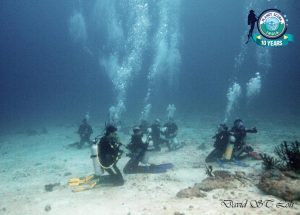
#3: You have to shell out a lot of money for diving gear
While scuba diving is a sport that needs equipment, it doesn’t mean to have to rush out and buy it. Most centers for scuba diving in India and internationally rent out gear. To begin with, you should start with the three basic items: mask, snorkel and fins. Wetsuits are the next on the to-buy list. Start buying gear only once you’re sure you are going to be diving regularly. Besides, renting gear initially will give you a good idea of which brand you should invest in.
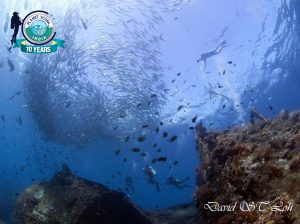
#4: Snorkeling gives you the same experience as scuba diving
We love snorkeling, especially when there are whale sharks or mantas close to the water’s surface. But nothing compares to the immersive experience that scuba diving gives. Why squint at the colorful reef way down below, when you can strap on your diving gear and descend for a closer look. Besides all that swimming on the surface is bound to tire you out. You can stay down much longer and explore more of the ocean when you scuba dive. Think turtles hiding below overhangs. Pygmy seahorses clinging to soft corals. Moray eels peeking out of reefs.
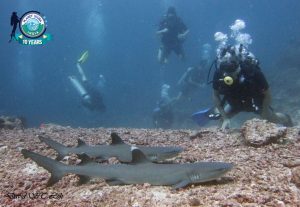
#5: You will get attacked by a shark
The theme song of Jaws hums in the heads of those who have developed a fear of sharks. It is the one of the main reasons why people are apprehensive about scuba diving in India, or anywhere else in the world for that matter. But as most divers will tell you, sharks are the most amazing creatures to see up close. In fact, you should count your lucky stars if you see one during a dive. Sharks are not in the least bit interested in divers. It’s just Bollywood and Hollywood fantastical blockbusters which have given them a bad rep.
6 reasons to learn scuba diving in India right now

Why would you want to restrict your holidays to just 30% of the earth’s surface, when you can go scuba diving in India and explore the rest of the world as well?! Besides, just think about all those amazing Instagrammable images you will click. The envious faces of family, friends and co-workers. And did we mention that the boss can’t get in touch with you when you’re underwater. Yes, it’s time to tick diving off your bucket list. Especially since you can learn scuba diving in India in your very own city.
1. Learn scuba diving in India & explore the most fascinating place on earth
Fancy yourself a traveler? As a scuba diver, you can claim exploration of the seas as well. Maybe, even discover a spectacular dive site! We kid you not. This is a strong possibility when scuba diving in India since only one per cent of the country’s 8,000 km coastline has been explored.
2. Escape to a tranquil world
Think of your last holiday and the number of times your boss or that pesky colleague sent you a message asking for some document or email they simply could not locate. Now think about your upcoming trip scuba diving in India and how you can claim no network underwater. No phone calls, no messages, no emails. Just eat, sleep, dive, repeat!
3. Experience a world both old and new
If you are a history buff, just think of the shipwrecks, underwater monuments and other fabulous sites you could explore when diving in India. The 9,000-year-old lost city of Dwarka in Gujarat, for example. Or the shipwrecks at Minicoy, Lakshadweep. Or the diving near an active volcano at Andamans. Every dive has something new and unique to offer, be it that interesting fish you’ve never seen before or the shipwreck you would love to explore.
4. Click the best holiday pictures
A photograph of you clicking a photograph of a turtle. Images of the most scenic beaches. White sands, blue seas, colorful coral, curious fish, your own picture underwater… Counting those Insta likes already?!
5. Make new friends
Diving brings together people from across the globe. People who share a common passion for the world below the waves. Besides, there is no chance you see a 5-meter shark and not come back to the boat and talk about it. Not only will be go back from your scuba diving holiday with new experiences, but also a new set of friends and a better understanding of different cultures.
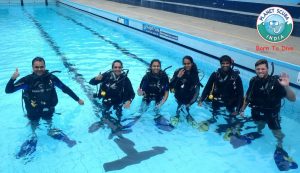
6. Learn scuba diving in India in your own city
Yes, you read that right. You can learn scuba diving in India in your own city. Even if it is a land-locked one like Bangalore. The theory and confined water sessions of the PADI Open Water Diver course can be completed before you head for your adventurous holiday. So you don’t need to spend precious vacation hours in a classroom. Instead, you can giant leap into the blue and discover the last unexplored frontier. You can even advance your skills with courses like the Advanced Open Water Diver, Enriched Air Diver and other PADI specialties.
Ready for your scuba diving in India adventure? Get in touch with us at holidays@planetscubaindia.com or fill in our online contact form, and we’ll get right back to you.
